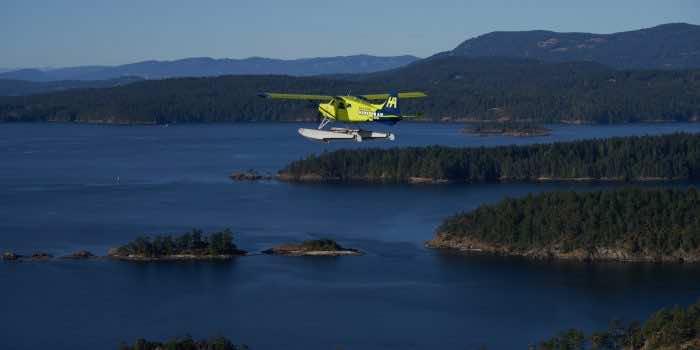A seaplane airline in Vancouver claims to have reached a new milestone in developing an electric aircraft.
According to a press release, Harbour Air Seaplanes accomplished its first direct point-to-point test flight on Wednesday, travelling 74 kilometres in 24 minutes from a Fraser River terminal near Vancouver International Airport to a bay near Victoria International Airport.
“We’re really excited about this project and what it means for us and what it means for electric aviation to be able to keep pushing that forward,” said Erika Holtz, who leads the project for the company.
Harbour Air, created in 1982, operates commercial flights between the Lower Mainland, Seattle, Vancouver Island, the Gulf Islands, and Whistler. It has recently focused on being a pioneer in green urban mobility, which would eliminate the need to burn fossil fuels for air travel.
In December 2019, a pilot spent three minutes flying one of Harbour Air’s aircraft, a more than 60-year-old DHC-2 de Havilland Beaver floatplane, with a Seattle-based company’s electric propulsion system magniX. Since then, the company has carried out test flights and continues to adjust the plane to fulfil federally controlled standards and demonstrate that it can fly safely with passengers.
Flying point-to-point this week was a considerable advancement, according to Holtz.
“Having this electric aircraft be able to prove that it can do scheduled flights, it moves us that step closer to being able to convert our entire fleet to electric completely,” she said.

However, experts predicted that Harbour Air would have to find a means to make the plane light enough to carry heavy lithium batteries and passengers without exceeding the jet’s weight constraints early on in the development process.
According to Seth Wynes, a post-doctoral scholar at Concordia University who has studied ways to de-carbonize the aviation industry, Harbour Air’s progress on its eplane project will not solve the pollution problem of long-haul flights. Still, it may motivate other short-haul carriers to follow suit.

“It’s also really helpful to pilot these technologies and get them going where they can be scaled up and used in a bunch of different places around the world,” he said. “So that’s why Harbour Air making progress on this front is exciting.”


